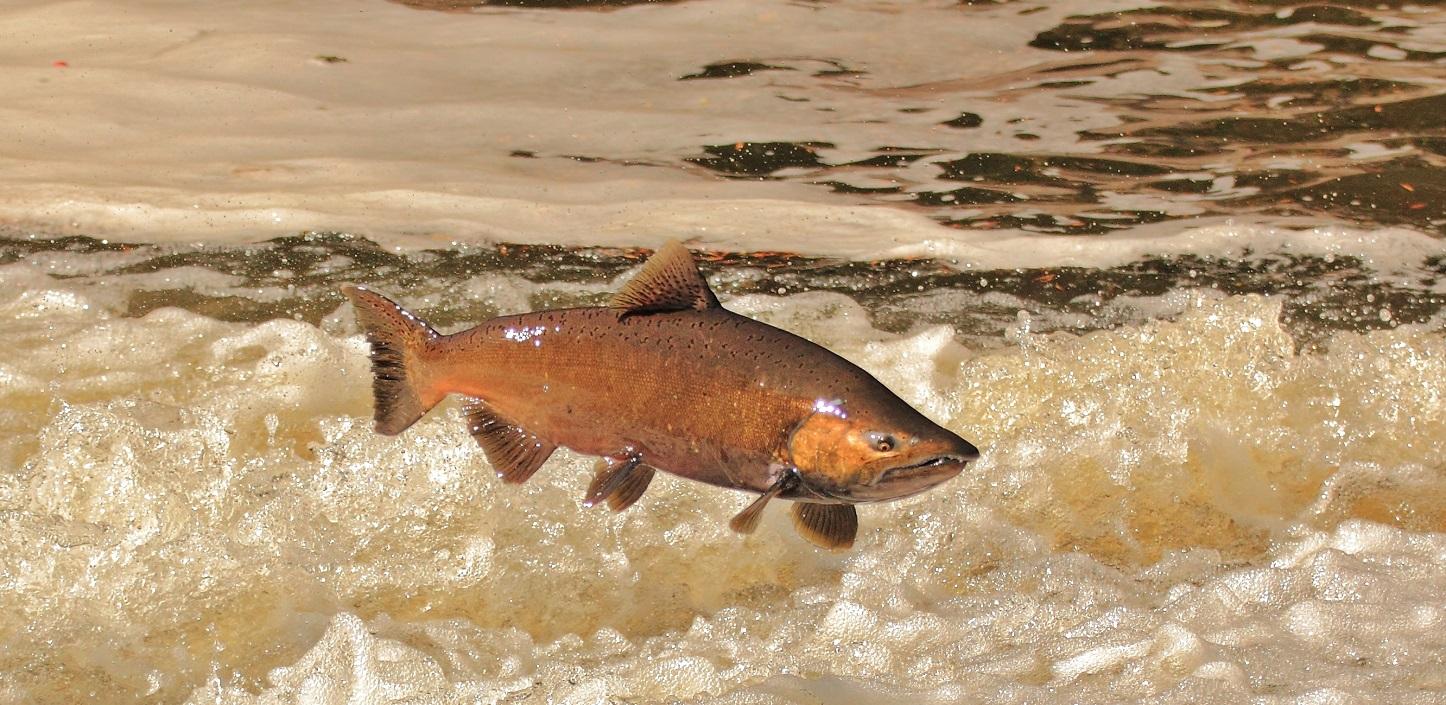
NFWF Announces $800,000 in Grants to Support Native Fish Species of Conservation Concern
Grants fund seven projects that will reestablish stream connectivity, restore instream and riparian habitat and manage invasive species
WASHINGTON, D.C. (December 14, 2022) – The National Fish and Wildlife Foundation (NFWF) today announced $806,000 in grants to restore, protect and enhance native fish species of conservation concern across the United States. The grants will leverage $4.4 million in matching contributions for a total conservation impact of $5.2 million.
The grants were awarded through Bring Back the Native Fish, a partnership between NFWF, the U.S. Fish and Wildlife Service and the U.S. Forest Service, with additional support provided this year by the Bezos Earth Fund.
“Declining habitat is the central threat to the hundreds of native fish species that live in waters across our country,” said Jeff Trandahl, executive director and CEO of NFWF. “The grants funded through the Bring Back the Native Fish program this year will support the survival of species including cutthroat trout, bull trout and Chinook salmon by mitigating predation from invasive species and improving stream flow for more hospitable spawning, rearing and refuge habitats.”
Leading factors in native fish species decline include habitat alteration, lack of adequate instream flows, and invasive and/or nonnative species. The projects supported by the seven grants announced today will reconnect streams, restore riparian and instream habitat and water quality, and manage invasive species.
The Bring Back the Native Fish 2022 grant recipients are:
- Kalispel Tribe of Indians will install low-tech process-based restoration structures and plant native vegetation to restore the wetland ecosystem of Reeder Creek, Idaho. Restoring wetland function including instream habitat and flow connectivity will improve water quality for native cutthroat trout and bull trout.
- Confederated Salish and Kootenai Tribes will suppress invasive lake trout in Flathead Lake, Montana, through increased harvesting and management efforts to assist in the recovery of native bull trout.
- Deschutes Land Trust will restore riparian habitat through the creation of new baseflow stream channels and restoration of floodplains, wetlands and uplands in Ochoco Preserve, Oregon. Project will renew ecologic functionality of waterways to aid in the reintroduction of Chinook salmon and summer steelhead and improve water quality.
- Trout Unlimited will add wood structures in Mill Creek, Montana, encouraging pool formation and increasing channel roughness and complexity for Yellowstone cutthroat trout.
- Lower Nehalem Watershed Council will install instream structures to provide vegetative cover for Coho salmon, Chinook salmon, steelhead trout and cutthroat trout, enhancing 0.2 miles and 2.5 acres of in stream habitat at the confluence of the Salmonberry and Nehalem rivers, Oregon.
- The University of Tennessee will conduct DNA analysis of Southern Appalachian brook trout to evaluate the success of various source populations and benefit reintroduction and stream management practices.
- Turner Endangered Species Fund will remove invasive fish from 1.5 miles of Las Animas Creek in New Mexico and establish refugia to enhance Rio Grande sucker and chub recovery.
Since the Bring Back the Native Fish program was established in 1991 it has awarded more than $27.2 million to 550 projects across the country, leveraging more than $104 million in matching contributions. In the past eight years, projects under this program have remedied more than 112 barriers, reopened more than 680 miles of habitat and engaged more than 4,180 volunteers in the restoration and enhancement of more than 275 miles of stream.
A complete list of the 2022 grants made through Bring Back the Native Fish program is available here.
About the National Fish and Wildlife Foundation
Chartered by Congress in 1984, the National Fish and Wildlife Foundation (NFWF) protects and restores the nation’s fish, wildlife, plants and habitats. Working with federal, corporate, foundation and individual partners, NFWF has funded more than 6,000 organizations and generated a total conservation impact of $7.4 billion. Learn more at www.nfwf.org.
###
Contact:
Rob Blumenthal, 202-857-0166, rob.blumenthal@nfwf.org